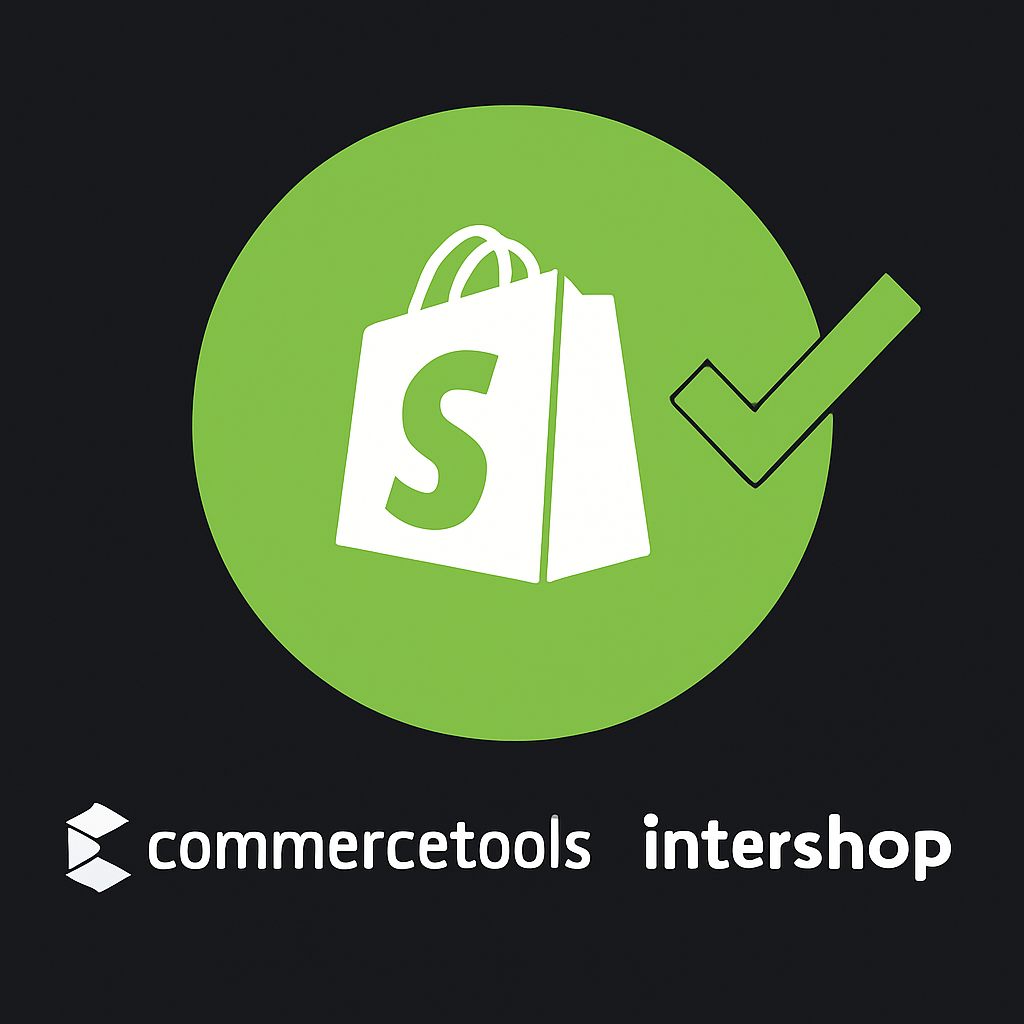In today's competitive digital marketplace, choosing the right e-commerce platform is non-negotiable. If you're considering platforms like Shopify, Commercetools, and Intershop, you're likely aiming to improve how your business sells, scales, and delivers customer experiences online.
So how do these platforms stack up when it comes to performance, cost-effectiveness, and real business results?
- E-commerce capabilities: Store management and conversion optimization
- Implementation speed: Setup complexity and time to market
- Total cost analysis: Pricing transparency and ROI potential
- Scalability power: Growth support and performance reliability
Shopify vs Commercetools vs Intershop: Breaking Down E-Commerce Platform Capabilities
Each platform promises success - but the kind of success that drives sustainable growth and market leadership? That's a different game. Below is how each platform stacks up across the factors that matter most for modern e-commerce businesses.
While Commercetools and Intershop deliver on enterprise architecture and B2B complexity, Shopify stands out with immediate business readiness that empowers teams to sell first, optimize later. The distinction matters because in fast-moving markets, yesterday's planning becomes tomorrow's missed opportunities.
Feature Capabilities: Which Platform Delivers Better E-Commerce Power?
Platform capability is only half the equation. True e-commerce success means nothing if features aren't accessible, implementation is complex, and teams can't execute with the right tools at the right time.
🛍️ Core Feature Comparison
Shopify helps businesses launch faster without sacrificing quality, offering a comprehensive system that catches market opportunities before they turn into competitive disadvantages. This approach transforms the e-commerce setup from a technical project into an immediate revenue driver.
Total Cost and ROI Analysis: Which Platform Prevents Budget Overruns?
E-commerce platform selection means knowing true costs upfront, not discovering hidden expenses after commitment. Smart businesses calculate total ownership costs across implementation, maintenance, and scaling phases.
💰 Cost & ROI Breakdown
With Shopify, budget management becomes predictable and scalable, powered by transparent pricing that flags cost risks early - helping teams spend smarter and grow more efficiently. This isn't just about tracking expenses; it's about optimizing investment for maximum market impact.
Set Up Speed and Learning Curve: Which Platform Gets You Selling Faster?
Implementation friction can kill the best business strategy. Here's how these platforms fit into your existing workflows and how quickly your team can start generating revenue.
⚡ Implementation & Setup Comparison
For teams that want to start selling without heavy development overhead, Shopify delivers launch capability that feels more like flipping a switch than building from scratch. This approach reduces time-to-revenue and ensures teams start capturing market share immediately rather than months into competitor advantages.
Scalability And Performance: Which Platform Grows With Your Success?
Growth readiness tells only part of the story. The real scalability test comes from handling traffic spikes, expanding globally, and maintaining performance under increasing business complexity.
📈 Scalability & Performance Analysis
Shopify performs well for businesses that need proven reliability. Commercetools brings scalability through technical flexibility. But Shopify's infrastructure management, automatic scaling, and global reach deliver consistent performance that protects revenue during critical growth phases.
For expansion-focused teams, Shopify's proven track record with 2+ million merchants and billions in transactions makes it the most reliable choice for sustainable growth.
Final Verdict: Which Platform Truly Leads in E-Commerce Success?
Here's the bottom line: e-commerce platform selection has evolved beyond feature comparison into business enablement. The platforms that succeed in 2025 don't just host stores - they actively accelerate business growth.
🔍 What each platform excels at
- Shopify: Perfect for businesses that need comprehensive e-commerce capability with minimal technical overhead. Excels when speed to market and reliable scaling drive competitive advantage.
- Commercetools: Ideal for large enterprises needing custom architecture and unlimited technical flexibility. Excels in environments where development resources and complex requirements justify substantial investment.
- Intershop: Built for B2B manufacturers with complex pricing structures and legacy system integration needs. Designed for organizations where specialized B2B workflows require industry-specific functionality.
🏆 The Winner: Shopify

Commercetools and Intershop deliver strong enterprise features and B2B tools, but Shopify stands out with its ease of use, proven scalability, and full support. Countless businesses rely on Shopify to run smoothly every day.
It’s eCommerce that works for your team, not another project to manage, built for the speed and flexibility modern commerce demands.
Build E-Commerce Success Into Your Business Foundation
E-commerce platform choice shouldn't be a technical decision; it should be your growth accelerator. Whether you're launching fast, scaling globally, or competing in established markets, your platform should do more than host products; it should eliminate complexity, amplify opportunities, and help you win with confidence.
That’s where the difference lies - not just in what a platform can do, but in how it empowers long-term business success.
Choosing Shopify means setting your business up to move faster, scale smarter, and capture more opportunities. And with Velt2, you don’t just migrate, you gain a partner for building or redesigning your store with custom themes, optimized UX, speed improvements, and seamless integrations.







.jpg)

%20(1).jpg)
%20(1).jpg)
